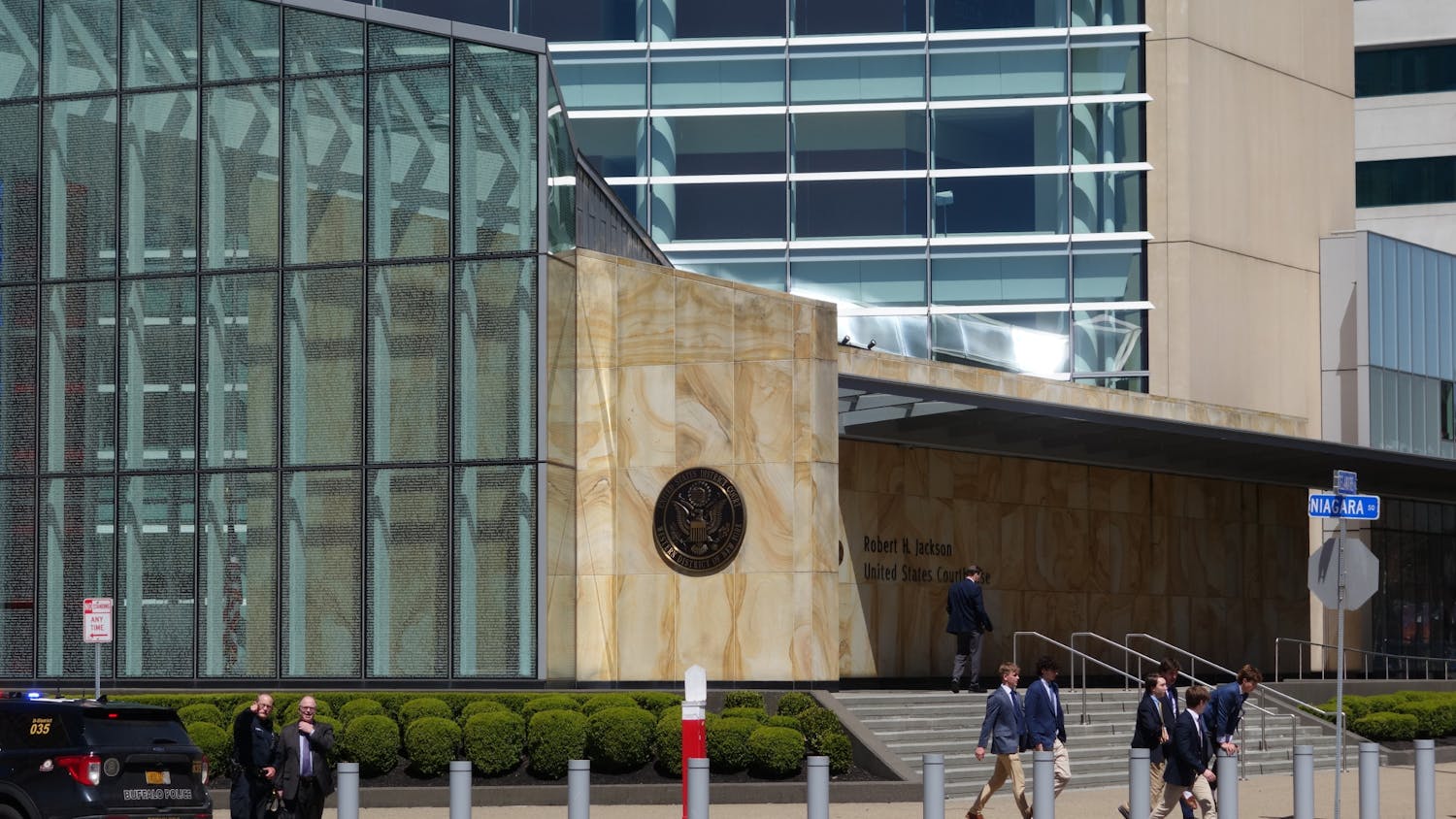Editor’s note: This letter remains in the condition in which it was sent.
These days, the average monthly rent for a small studio apartment in Buffalo hovers around $900. In order to qualify for a lease, landlords usually demand that a renter makes 3 times the monthly rent. So in order to qualify for a studio apartment in Buffalo — not a luxury apartment, mind you, but a humble studio apartment in an old building — a renter would need to have a pre-tax income of around $32,400.
UB PhD students, the graduate workers who teach many of UB’s core curriculum classes, make $20,000 a year. With this income, graduate workers would only qualify for an apartment that costs $555 per month. The problem is: there are no apartments on the market for prices that low. Without roommates, UB graduate workers quite literally cannot afford to qualify for a lease for any apartment that is currently available to rent in the Buffalo metro area. UB does not pay us enough to live.
Although the University will raise PhD students’ pay to $23,000 beginning next year, this “raise” doesn’t keep up with inflation, and it still wouldn’t enable us to qualify for a studio apartment. In terms of purchasing power, graduate workers will make $342 less per year in 2023 than we did in 2020, according to the Bureau of Labor Statistics’ inflation calculator. After our raise this fall, we will make around $10,000 less than a living wage for a single person in Buffalo, which MIT calculates at $33,781. And some non-PhD graduate workers report making as little as around $11,000 per year, an unimaginably low wage.
Because of our low pay, some graduate workers turn to food banks, like UB’s own Blue Table, in order to feed themselves. (Full-time students are generally ineligible for food stamps or government-subsidized affordable housing.) International graduate students can’t afford to visit home if their family has an emergency. Graduate workers often turn to student loans or credit card debt. Or, instead of focusing on our research and teaching, we’re forced to pick up second jobs, which leave us frazzled, harried, and constantly thinking about money instead of our research. These problems are even worse for graduate workers who have children and international graduate workers, many of whom are legally barred from getting second jobs.
Faculty at UB have consistently asked UB’s upper administration to address this crisis. In return, they have received silence. Four years ago, the UB Faculty Senate unanimously voted to propose the creation of a democratically organized Living Stipends Solution Committee, which would make recommendations for establishing a living stipend for graduate workers. President Tripathi ignored this resolution.
At the Faculty Senate meeting on Tuesday, May 16, English professor James Holstun asked President Tripathi if he would commit to joining such a committee. “It’s not joining a committee, but what actions have happened since then,” Tripathi replied. (Remember: in terms of purchasing power, graduate stipends have fallen since 2020, even when we take Tripathi’s “increase” into account.) Instead of offering any specific actions or plans to address the real suffering experienced by graduate workers, Tripathi offered vague, bureaucratic bromides: “I’m committing to looking at the scholarship every year,” he said, apparently referring to research about graduate stipends. But that’s all he would promise, despite moving appeals from graduate workers in the Faculty Senate meeting. (The graduate workers weren’t allowed to speak until two professors stood up and asked that they be recognized.)
The events at the Faculty Senate meeting show that President Tripathi has no real plan to address the cost of living crisis for graduate students. While Tripathi “looks at” this issue, graduate workers continue to struggle. And it feels like we all know what the results of Tripathi’s careful analysis of “the scholarship” is going to show: that UB can’t afford to pay its workers enough to afford a studio apartment in Buffalo.
But all of the evidence that I can find does not support the idea that UB can’t afford a raise for graduate workers. UB Foundation has $1.3 billion, $355 million of which doesn’t have any donor restrictions (that means that UB Foundation can spend $355 million on whatever it wants). The State of New York just increased UB’s general operating aid by $163 million. And if UB truly cannot afford to pay its workers a living stipend — despite the fact that it found nearly $38 million for the new One World Café — we are at least owed a detailed explanation. Why can’t UB pay us a living stipend? What is being prioritized above graduate workers’ stipends in the organization’s budget, and why? After all, many of our peer institutions have figured out how to pay their graduate students far more than UB does. The University of Michigan, for example, pays PhD students over $36,000. The average pay for PhD students in UB’s IPEDS cohort (a set of universities to which UB has chosen to compare itself) is over $26,000. If our peer institutions can find the money, why can’t UB?
Funding graduate workers helps UB accomplish everything it says it wants to do. It helps graduate students focus on research and teaching and sets graduate students up for success. It will likely improve undergraduate education, since undergrads won’t be instructed by exhausted, underpaid workers. It would surely make our graduate programs more enticing to top applicants, which might help with UB’s “Top 25” ambitions. And increasing graduate student stipends will demonstrate UB’s claimed commitment to diversity because it will open up graduate education to students whose families can’t afford to subsidize their continued education. President Tripathi, it’s time to join a Living Stipends Solution Committee. Let’s work together to get UB’s graduate workers the funding they need. We’re not asking for much. We just want to earn enough to live in a studio apartment in Buffalo.
Isaac Kolding, PhD candidate, Department of English; President, Graduate Student Association





